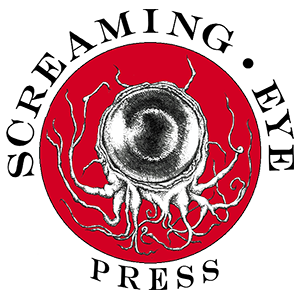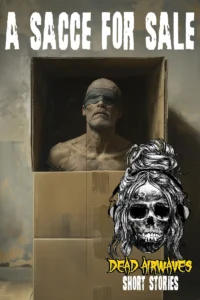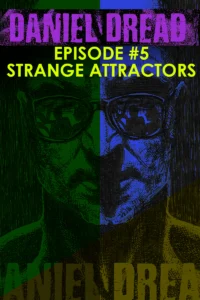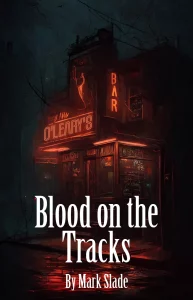Joe R. Lansdale: From the Old West to Horror Legends
Insights on Writing, Inspiration, and American Mythology
Written by Lothar Tuppan
Sometime in the late ‘80s I went to a store I sometimes frequented which was less of an orderly shop and more of a sprawling mass of comic books; head-shop paraphernalia; smut; occult supplies (nothing “New Agey” about their wares); and hard to find small press books, journals, and chapbooks. I was talking to the owner (who looked a bit like he could be S. Clay Wilson’s sleazier brother) about whatever we were geeking out on when I said, “I really wish there were some good horror western stuff. That would be so cool!” He put out his cigarette (yeah, it was one of those stores where the owner smoked all the time and everything was saturated with stale smoke) and beckoned me to follow him. He led me to the section of small press books and handed me a copy of Dead in the West by Joe R. Lansdale. “If you don’t like it,” he said confidently, “I’ll buy it back from you.” Not only did I not return it but as soon as I read it I knew that this Lansdale guy was touching onto something more than just “cool,” he was tapping into the currents of American mythology.
Joe R. Lansdale was born in Texas and in the course of his career has written dozens of novels and numerous short stories, comic books, and screenplays. He’s written crime stories, westerns, weird westerns, horror, mystery and most of them transcend the genres publishers would categorize them in.
He’s won a variety of awards including a staggering amount of Bram Stoker Awards, World Fantasy Awards, Edgar Awards, New York Times Notable Book of the Year, the Raymond Chandler lifetime achievement award, among others.
People have praised his plotting, pacing, dialogue, and prose style (all of which is completely accurate) but the thing that really makes Lansdale’s work stand out is that mythic quality I mentioned above.
People use the term “myth” or “mythic” pretty loosely these days. Anything “cool” that is big enough could be “mythic.” I am applying the term here in a more specific way. In certain schools of folkloristics “mythology” deals with specific things: cosmogony (the origins of the order of things), cosmology (the study of the order of things), anthropogony (the origin of humans), anthropology (the study of humans), and eschatology (the study of the last things). While Lansdale’s works may not directly invoke three of those criteria (although some, like Bubba Ho-Tep do touch on eschatology), they do resonate harmonically with our American Western mythology by exploring the hidden workings behind the world (darker cosmological aspects) and how humans act and the consequences of those actions (bleaker anthropological aspects).
In much of Lansdale’s work, the bright sun and long shadows of the Old West and its morality still play amongst the lives of his characters and worlds not in a banal, artificial way, but in a way that reminds us that the foundations of the past (as well as the cracks in that foundation) are always supporting what we have built on top of it. An, almost noir, conception that the past is, at least somewhat, inescapable and that it is looking and judging our present lives and actions.
That quality is one of the things that makes Lansdale’s work haunting and poignant, as well as being entertaining reads.
Whether it is the heroes from his Hap and Leonard series of novels, Elvis in Bubba Ho-Tep, the Reverend Jebediah Mercer from that hard-to-find printing I was given decades ago, or most of his other characters, we feel like we are reading about people who are extremely human in sometimes both admirable and contemptible ways. They live their lives in a world with a long history (if they would take the time to look behind them) and with metaphysical portent (if they would take the time to notice).
Overt genre elements notwithstanding, the characters and worlds that Joe R. Lansdale provides are a lot more like us and our world than we might care to recognize.
Interview with Joe R. Lansdale
What was the first thing you remember reading?
I think it was a little Disney book based on Song Of The South. I saw the movie when it was rereleased when I was a kid. Now you look at it, and go wow, that’s racist as hell. But back then it was talking and singing animals and one of my heroes, Brer Rabbit. After that, I really dove into comics and then books, as well as movies. It kind of runs together after that, but Song Of The South is the first book I remember reading. I don’t know how I came by it.
You are known for several stories and novels, what were the inspirations for Bubba Ho-Tep, “The Tall grass,” The Magic Wagon?
Bubba Ho-Tep as due to my sister-in-law having gone to the same High School as Elvis. They graduated the same year. She knew him in passing, and my brother met him through her, as they were dating then. He was in Memphis trying to break into the music business. He didn’t in the big way he hoped, but he did meet Elvis.
The Magic Wagon is harder to nail down. I do remember reading The Gypsy Moths and liking it, as well as the film, and the idea of traveling show folk passing through towns, and my love of the Old West, and reading about Medicine Shows came together. But they were the catalyst, the rest of it, I don’t know. Reading about Western gunfighters and reading Dime Novels from back then had something to do with it.
“Tall Grass” just hit me and I wrote it in a setting, and out in went for an anthology I’d been asked to be in. I liked it because of its simplicity. And once again, it borders on the Old West era.
What artist/writer inspires you the most?
Tim Truman fits me very well. But Mark Nelson did well with my material, and I love an artist named Dirk Berger who has done covers for my SST books, which are specialty books. Great publisher. Great artist. I could name a lot of others. Alec McVeigh is another. Dani Serra, and on and on.
How did you get involved with Batman the animated series.
I had written some Batman short stories for anthologies, my friend Bob Wayne worked at DC and felt I’d be good for the series, so he put a word in someone’s ear. I got a call, and I worked on four episodes. Actually, the last one was for Batman and Robin Adventures, but they are all grouped together now. I did a Superman as well, but I was rewritten to better advantage, I think. I love Superman, but I didn’t get the show as well as Batman. I got story credit.
What story are you proudest of?
I think I cracked some ice with “Night they Missed the Horror Show.” It was a way to engage people with what I hesitate to say is a lesson about racism, but certainly an exploration of it. I didn’t hold back in language and approach. I knew what I had to write to make it hurt in an instructive way.
Do you think your environment, where you live, has an effect on type of art you create?
Absolutely. It is in my bones and in my typing fingers. It’s as much a part of who I am as my flesh. It shaped me. And it did so with good and bad. I love this place. Writing about the bad things here, is not to imply that it’s all bad. Far from it. But if you are crime or horror oriented, you write about that side of things, but it’s not meant to be all sides.
Is it easier for you to create if given an assignment or does it get in the way of your creativity?
It can work either way. I try not to take an assignment unless I really think I could do a good job with it. I prefer writing my own work, but have played in other people sand boxes. I’ve fulfilled some childhood desires that way, but I prefer being me, and pretty much am even in assigned work. If someone says, I need a mummy story, and I think that would be fun, I give them Bubba Hotep. I find those things challenges to be me, not just working it to fit the general job description. I don’t follow rules too well when it comes to writing.
Where do you think the world of literature/popular culture will be like in ten years?
It will be blending genres more and more, that’s for sure. It really will depend on the writers and if we can get away from people telling people what they can’t write, discuss, or say. There are limitations to everything, but art, writing, music, it shouldn’t be bound by political correctness gone overboard.
What was the oddest thing you’ve ever been asked to do in your writing career? A specific assignment/books for a publisher?
I was once asked to try and write a musical for an Earth, Wind, and Fire stage idea. I think Phil Farmer might have gotten me into that because he didn’t want to do it. My memory may be incorrect on that, as so much time has passed. This was in the seventies or early eighties. I was hoping it would be a terrific idea. But it didn’t do anything for me. I also figured they had ten other writers taking a hack at it, and no one was offering me up front money. It was on spec. I didn’t write it.
What projects are you working on now?
A new novel, a short story, and a couple of odds and ends here and there.
Would you like to know more?
Date Modified: 10-28-2025

























